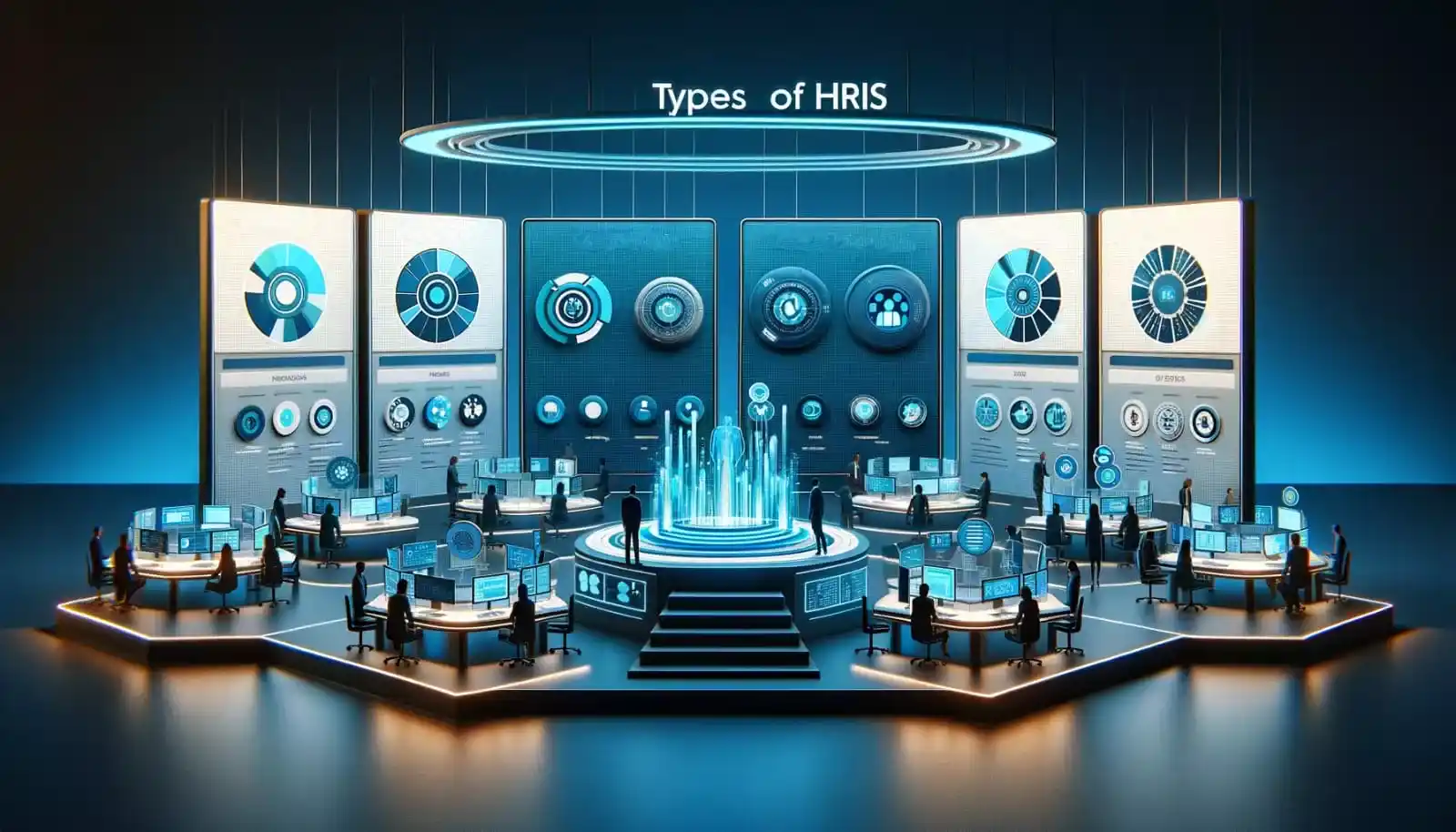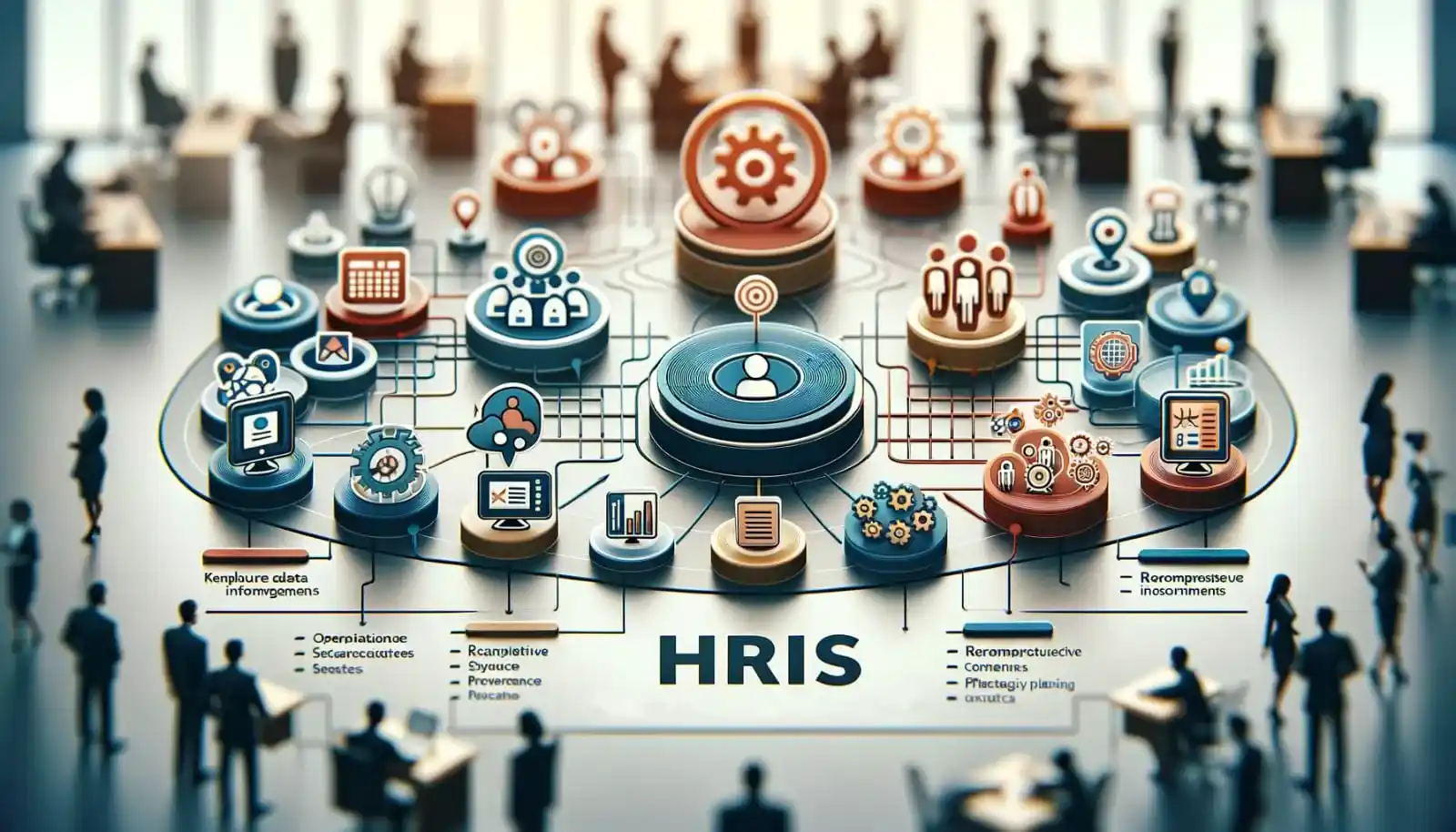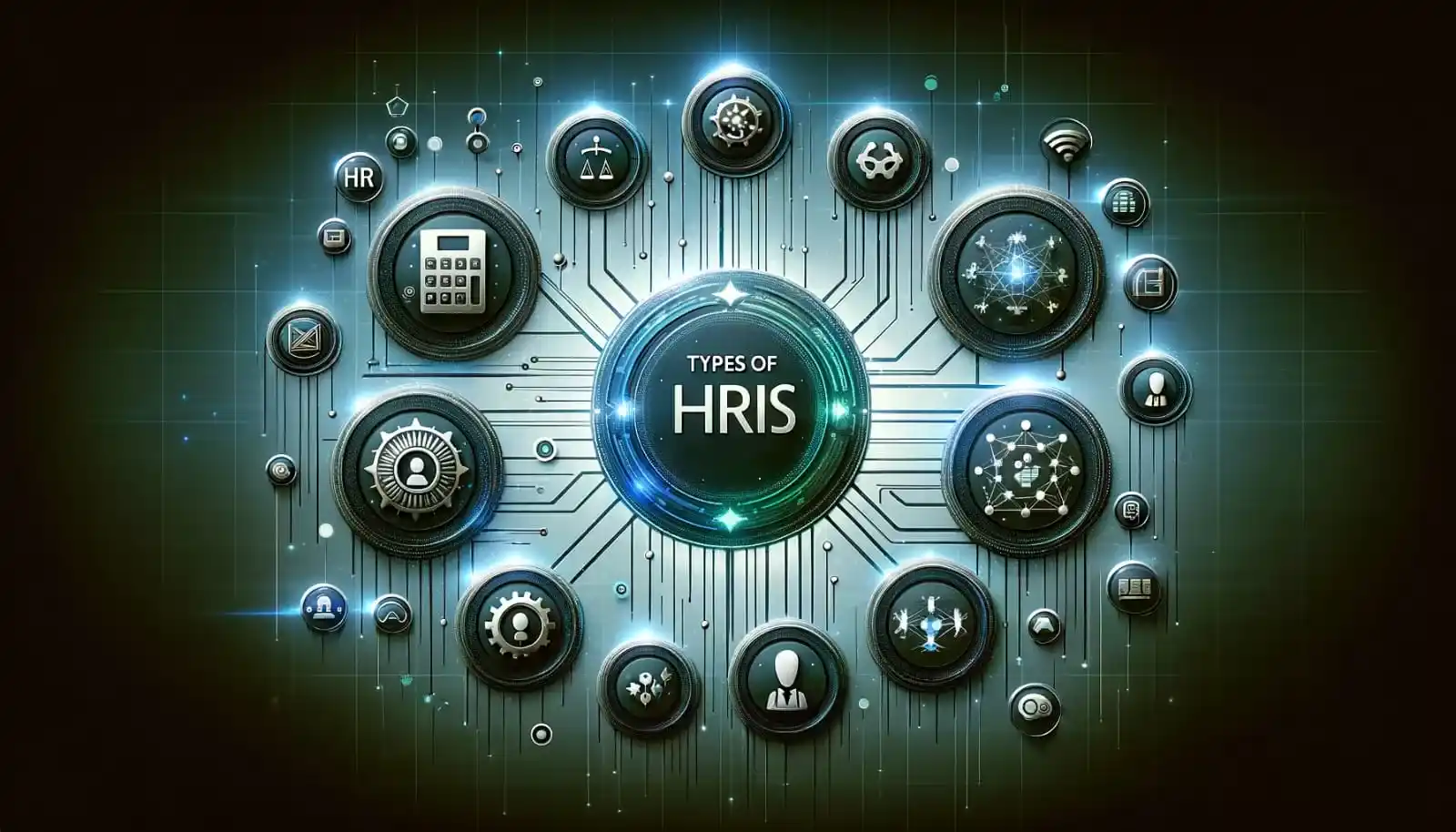Table of Contents
In today’s rapidly evolving workplace landscape, Human Resource Information Systems (HRIS) have become indispensable tools for organizations seeking to streamline their HR processes, enhance employee experiences, and drive overall efficiency. Among the plethora of HRIS options available, understanding the diverse range of types can significantly impact an organization’s ability to achieve its HR objectives.
Types of HRIS encompass a wide array of functionalities, each tailored to address specific HR needs and challenges. From core HR management to talent acquisition, performance tracking, and beyond, the capabilities of HRIS solutions vary considerably. By delving into the distinct types of HRIS available, organizations can unlock new avenues for efficiency and productivity across their HR operations. These systems are the backbone of HR operations, facilitating the storage and management of employee data, payroll processing, benefits administration, and regulatory compliance.

Exploring the spectrum of Types of HRIS offers organizations insights into specialized tools and features that can optimize their HR functions. Whether it’s improving recruitment processes, enhancing employee development initiatives, or fostering a culture of performance excellence, understanding the diverse range of the types of HRIS empowers organizations to make informed decisions and maximize their HR potential.
Types of HRIS Solutions
HRIS, short for Human Resource Information Systems, encompasses a diverse array of types, each tailored to specific functionalities and features. Here are some prevalent variations:
1. Core HRIS
Core HRIS platforms, integral to HR operations, encompass fundamental HR management functions. These systems act as the backbone, handling employee data storage, payroll processing, benefits administration, and regulatory compliance. Serving as a centralized repository, Types of HRIS ensures data accuracy, accessibility, and regulatory adherence. They form the cornerstone of efficient HR management, streamlining processes, enhancing organizational effectiveness in managing personnel, and complying with regulatory requirements.
2. Talent Management Systems (TMS)
Talent Management Systems (TMS) revolutionize talent acquisition, development, and retention processes. These Types of HRIS streamline recruitment, onboarding, performance management, and succession planning. They empower organizations to attract, nurture, and retain top talent efficiently. By aligning employee skills and goals with organizational objectives, TMS platforms boost workforce productivity and engagement, fostering a culture of continuous growth and development within the organization.
3. Employee Self-Service (ESS) Systems
Employee Self-Service (ESS) Systems revolutionize HR tasks by empowering employees to manage personal information, time-off requests, and benefits enrollment. These systems minimize administrative overhead, fostering efficient communication between employees and HR departments. Types of HRIS like ESS streamline operations, promoting operational efficiency and boosting employee satisfaction. By placing control in employees’ hands, ESS systems optimize workflows and enhance the overall HR experience, contributing to a more productive and engaged workforce.
4. Recruitment and Applicant Tracking Systems (ATS)
In the competitive job market, efficient recruitment processes are vital. Types of HRIS like Applicant Tracking Systems (ATS) automate recruitment, from job posting to candidate evaluation. Leveraging ATS capabilities, organizations expedite hiring, reduce time-to-fill, and secure the best-fit candidates. These systems streamline the entire recruitment journey, enabling organizations to stay competitive and attract top talent efficiently.

5. Learning Management Software (LMS)
Learning Management Software (LMS) are integral Types of HRIS that facilitate continuous learning and development, vital for both employee growth and organizational success. These platforms provide a comprehensive suite of tools for delivering, managing, and tracking training initiatives. By granting access to a diverse array of learning resources, LMS solutions empower employees to enrich their skills, enhance performance, and foster innovation, contributing significantly to organizational advancement and competitiveness.
6. Performance Management Systems (PMS)
Performance Management Systems (PMS) are vital for aligning employee performance with organizational goals. These types of HRIS facilitate goal setting, performance tracking, feedback exchange, and evaluation. By fostering transparency, accountability, and feedback, PMS platforms enhance employee performance and contribute to organizational success. Implementing robust PMS solutions empowers organizations to drive continuous improvement and create a culture of excellence, ultimately fostering growth and innovation within the workforce.
7. Payroll Systems
Ensuring employee satisfaction and regulatory compliance, accurate payroll processing is paramount. Payroll Systems automate calculations, tax deductions, and payments, alleviating errors and administrative burdens. This streamlining enhances efficiency, accuracy, and regulatory adherence. Types of HRIS like Payroll Systems are indispensable tools for organizations striving to optimize payroll operations while prioritizing employee well-being and legal compliance.
8. Benefits Administration Systems
Types of HRIS, like Benefits Administration Systems, tackle the complexity of managing employee benefits. These systems simplify enrollment, track eligibility, and manage benefit plans efficiently. With Benefits Administration Systems in place, organizations ensure employees access comprehensive benefits offerings effortlessly. By streamlining benefits administration, organizations improve employee satisfaction, retention rates, and overall well-being, fostering a positive work environment and enhancing organizational success.
9. Time and Attendance Systems
Time and Attendance Systems, a crucial component of Types of HRIS, streamline workforce management and payroll processing by automating timekeeping tasks. Employees can conveniently clock in/out, request time off, and access their attendance records. These systems ensure accuracy and compliance with labor regulations, enhancing efficiency in workforce management and payroll administration. With their ability to track attendance, leave, and work hours, Time and Attendance Systems optimize HR operations seamlessly within organizations.

Bringing the Types of HRIS Together
The landscape of HRIS is incredibly diverse, presenting organizations with a myriad of options to streamline HR operations and propel organizational success. By delving into the array of Types of HRIS available, organizations can pinpoint solutions that precisely match their distinct needs, goals, and obstacles. Whether optimizing core HR functions, refining recruitment procedures, or nurturing employee growth, HRIS platforms serve as indispensable tools in shaping the future of work.
These platforms facilitate seamless integration of HR processes, empowering organizations to adapt and thrive in an ever-evolving business landscape. As organizations continue to embrace digital transformation, the importance of selecting the right Types of HRIS cannot be overstated. By leveraging the capabilities of HRIS platforms effectively, organizations can unlock new levels of efficiency, agility, and innovation, positioning themselves for sustained success in a dynamic and competitive market.